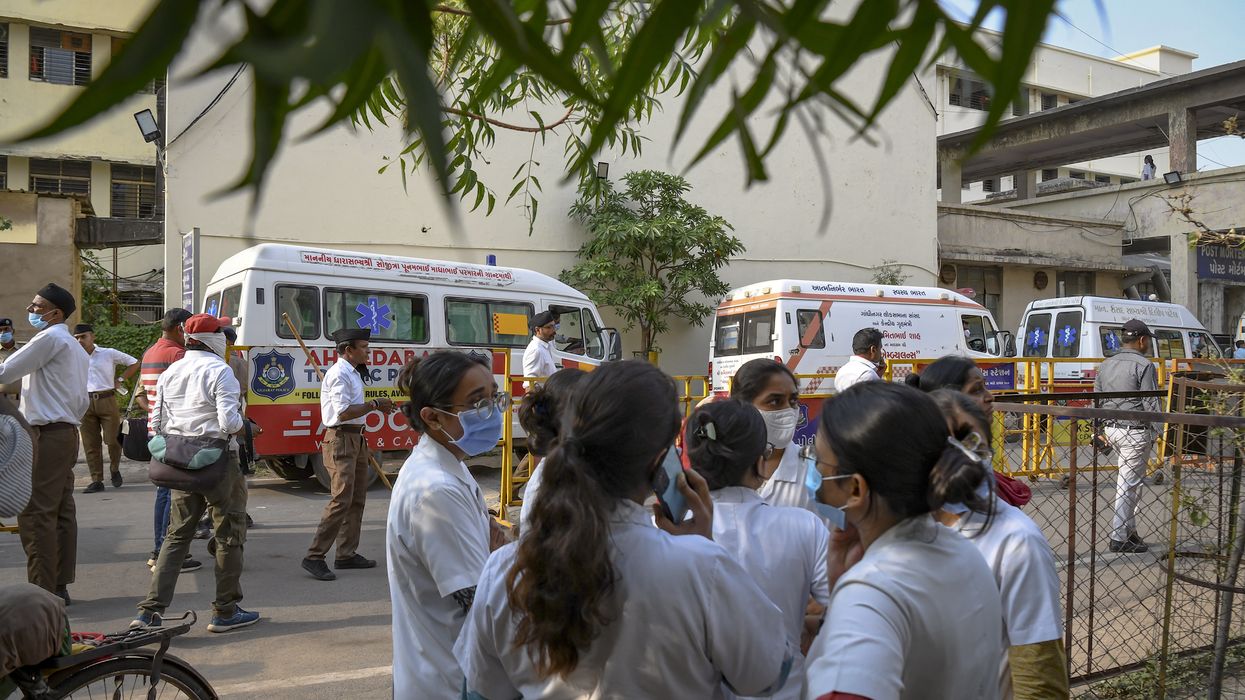GRIEVING families waited on Saturday for updates after one of the deadliest aviation disasters in recent decades, as the death toll from the Air India crash rose to 279.
The Boeing 787-8 Dreamliner issued a mayday call shortly before crashing around midday on Thursday. The aircraft burst into flames as it hit residential buildings in the northern Indian city of Ahmedabad.
A police source confirmed to AFP on Saturday that 279 bodies had been recovered from the site. The crash is among the worst aviation disasters of the 21st century.
There was one survivor among the 242 passengers and crew members on board. The tail section of the aircraft remained lodged in a hostel for medical staff.
At least 38 people on the ground were also killed.
"I saw my child for the first time in two years, it was a great time," said Anil Patel, whose son and daughter-in-law had come to visit before taking the flight.
"And now, there is nothing," he said, breaking down. "Whatever the gods wanted has happened."
Search for black box continues
Relatives of the victims have been providing DNA samples in Ahmedabad. Some family members have flown in to assist in the identification process.
The final casualty figure will only be confirmed once DNA testing is completed.
According to Air India, the aircraft was carrying 169 Indian nationals, 53 British, seven Portuguese, and one Canadian citizen, along with 12 crew members.
The victims included a senior politician and a teenage tea seller.
The only survivor, Vishwash Kumar Ramesh, 40, spoke to national broadcaster DD News from his hospital bed. A British citizen, Ramesh said, "Initially, I too thought that I was about to die, but then I opened my eyes and realised that I was still alive."
Aviation minister Ram Mohan Naidu Kinjarapu said on Friday that a flight data recorder had been found. "It would significantly aid" the investigation, he said.
Forensic teams are still searching for the second black box as investigators try to determine why the aircraft crashed shortly after takeoff, reaching a height of only 100 metres (330 feet).
US aircraft manufacturer Boeing said it was in contact with Air India and "ready to support them" regarding the incident. A source close to the investigation said this was the first crash involving a 787 Dreamliner.
(With inputs from agencies)





